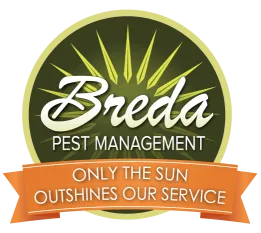Of all the pests and bugs that can invade your yard, mosquitoes can be some of the most annoying, especially during the warm summer months. When spending time by the pool or lounging outside for a barbecue, nothing can ruin it more quickly than the constant buzzing, bites, and irritation that mosquitoes bring.
Finding a way to lower the numbers of these pests can be pretty difficult. While several chemicals and sprays have been developed to kill mosquitoes and halt their reproduction, natural solutions also exist. For the best protection, smart homeowners can use natural predators and plant-based deterrents to reduce the mosquito population in their yards without resorting to chemicals.
Here are some of the plants and animals that can help cut down your mosquito problem:
1. Marigolds
Beyond their beautiful and vibrant coloration, the scent that marigolds release make them a great natural mosquito deterrent. They're also known to keep away other insects that can damage your other plants, making them especially helpful for gardeners or people who like to grow some of their own food.
Plant some marigolds in your yard, either from a starter plant or from a seed, and start solving your mosquito problem and beautifying your home simultaneously.
2. Citronella
While largely produced in Asia, the citronella plant is a well-known mosquito solution among southern homeowners. This clumping grass emits a strong scent that's quite effective for mosquito and other insect control, and its natural properties have made it a common ingredient found in several insect repellants.
The herb has also been used in many other ways, such as a perfume or as a way to calm barking dogs. It has even had success as a spray to keep pests from destroying furniture and other household valuables, meaning that homeowners that invest in citronella plants for mosquito protection may be able to glean several additional benefits.
Citronella can be planted in a large pot, or used as an ingredient in candles or torches.
3. Catnip
While, as the name implies, catnip is more widely-known for its effect on cats, it nevertheless serves as a potent mosquito repellant. A close relative to the mint plant, catnip, like citronella and marigolds, releases a scent that mosquitoes can't stand, deterring them from approaching.
Unfortunately, catnip only works well as a repellant if the mosquitoes are in close proximity to the plant, meaning that you probably won't be able to protect your entire yard with just this plant. However, the oil in catnip can work wonders when applied to the skin, acting as a natural bug spray. Catnip is also very easy to grow and maintain, making it easy to keep a steady supply.
Just remember how intense the effect of catnip is on cats, and how powerfully they are attracted to it. You don't want to replace one pest with another in the form of unwanted felines on your property.
4. Dragonflies
Why not use a helpful insect to fight a harmful one? In the realm of animals that help maintain mosquitoes, dragonflies are among the most unique. Dragonflies consume a lot of mosquitoes, but sometimes even with the large amount they ingest, they may not seem to to have a significant impact on the problem.
However, their real strength is less in stopping an existing mosquito infestation and more in preventing them in the future. Dragonflies do consume adult mosquitoes, but they have a much greater impact on mosquito larvae. Mosquitoes lay eggs in bodies of standing water, which dragonflies will happily eat up before they have a chance to grow into adults.
5. Frogs
Unlike dragonflies, frogs in their tadpole stage do not do much with eliminating mosquito larvae. Even though they may share the same space, tadpoles primarily eat plants and algae until they mature into adults. However, once they are mature, frogs love nothing more than to eat pesky mosquitoes.
Just remember that adult frogs consume all sorts of insects, so they may not focus solely on your mosquito problem if other food sources are present. Likewise, the quantity of food they consume means that frogs alone will not be enough to eliminate a serious mosquito problem.
That said, frogs are still an easy and environmentally-friendly way to help make a mosquito problem more manageable.
6. Bats
Bats feed on the insects that are the most dangerous to humans, namely mosquitoes, and the ones that cause the most damage to crops, such as grasshoppers, rootworms, beetles, and so on.
Their diets, combined with their excellent hunting skills, make them an incredibly important part of Georgia's ecosystem.
Like frogs, this means that introducing bats into the woods near your home can help protect you from a number of harmful pests in addition to mosquitoes. Unfortunately, this also means that, like frogs, bats alone are generally not enough to fully eliminate a mosquito population - but they can be a tremendous help, especially for mosquitoes that are more active at night.
If you happen to need mosquito extermination services, don't hesitate to give us a call today!




